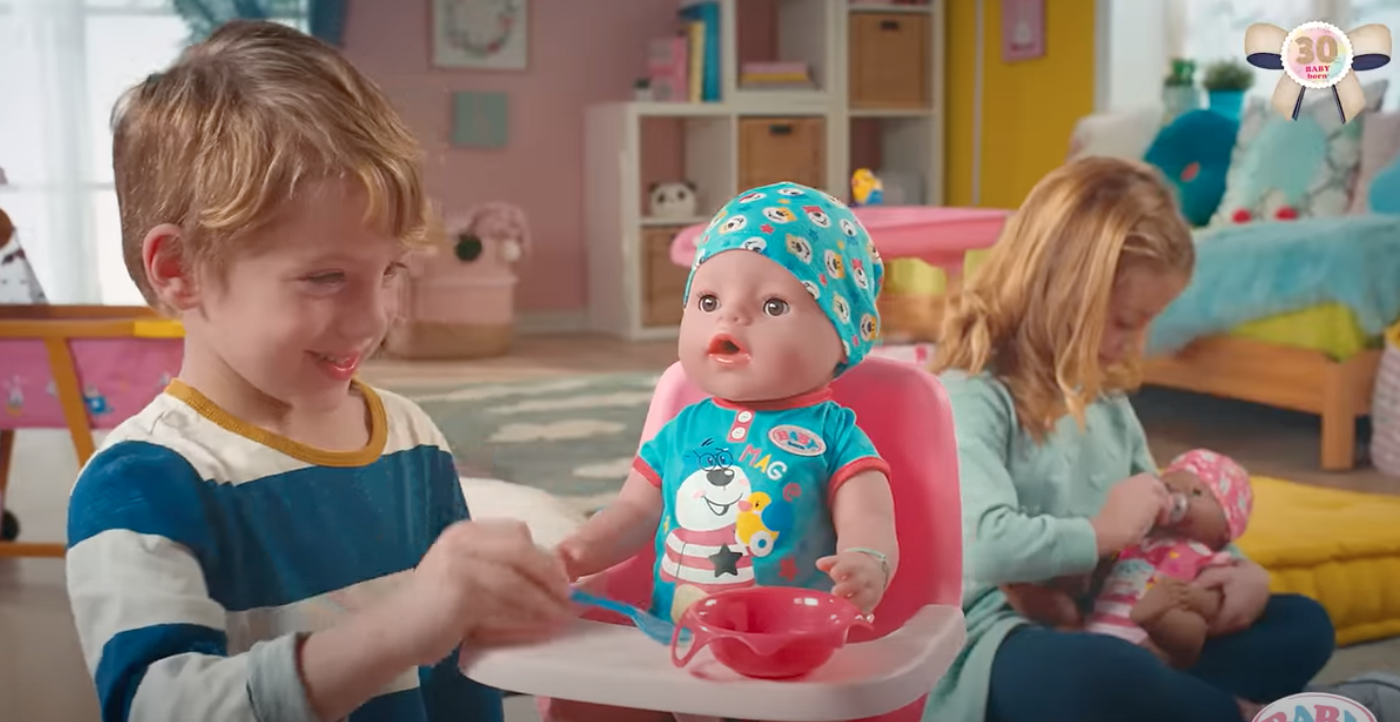
“Boys don’t play with dolls”, says the title of a study from 2014 from Endendijk et al., referring to a statement a parent made when it came to gender stereotypical toys. Dolls were often associated with girls (Rabelo, Bortoloti, & Souza, 2014) every commercial showed girls with dolls. In the last few years this view has slowly changed.
Especially in the last decade, there has been a massive shift in society showing that men are also gradually taking over the role of caregivers (Lee & tang, 2013) , or same-sex caregivers. Moreover, there is supposed to be no gender specific differentiation for who should take care of a child/baby .
There has not only been a change in real life but automatically also a change in the way advertisements present the topic. Although the majority of doll advertisements are still focused on girl’s representation ( Fine & Rush, 2018) there have been a few changes made.
Commercialization of the baby doll developed from showing only girls to breaking down gender norms where boys also play with baby dolls
In 2021 Zapf creation presented the Baby Born magic doll commercial where young boys also played a vital role. Yet there were still some stereotypes of representation e.g. the baby born the boy in the commercial plays with, wears the color blue, which is considered a gender stereotypical color for boys.

Baby Born doll commerical. Source: Zapf Creation on YouTube, 2021
Therefore, it is more important to raise children as open as possible to give them the opportunity to decide whatever kind of role they prefer and in which they feel the most comfortable in.
Recent studies have shown that parental belief and their view on gender has the most influence on the children. Moreover, parental views and education influences if and how boys play with dolls( Endendijk et al., 2014)
It shows how societal norms and cultural expectations influence the choices of toys. Understanding these preferences contributes to discussions about gender stereotypes, parental influence, and the shaping of early social behaviors (Zeteroğlu, E. Ş. (2018). Several studies have shown that boys also like to play with dolls( Eliot, 2010). It is even encouraged to let boys play with dolls, as it enhances their social skills and encourages them to act as a caregiver and foster their social skills( Eliot, 2010).
Have a look at the Baby Born commercial